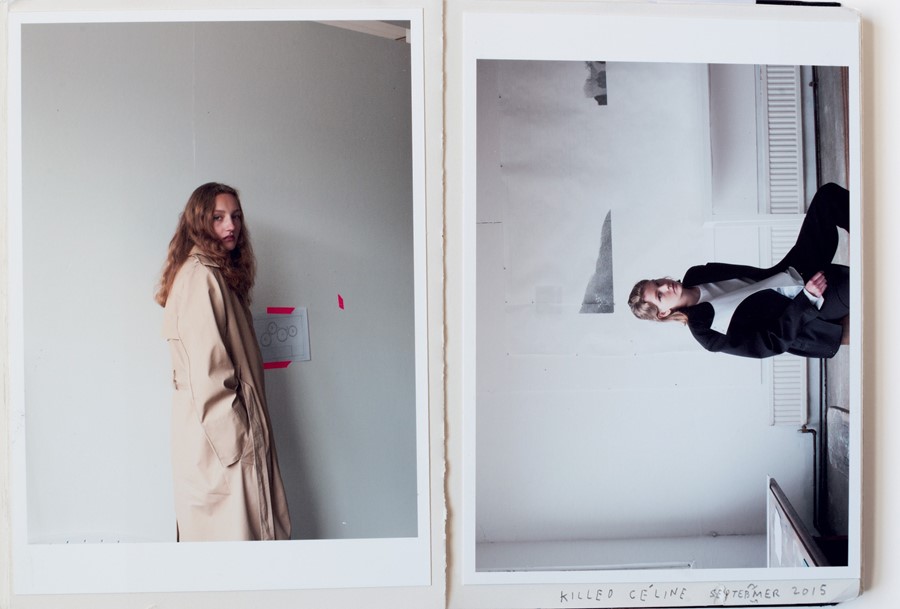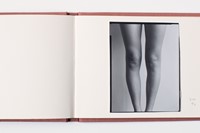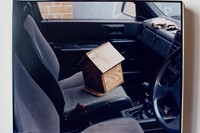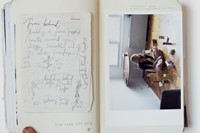Published by Loose Joints, Nigel Shafran’s Workbooks 1984-2024 gives rare insight into the British photographer’s practice across the past 40 years
“It’s a bit like clues, isn’t it,” suggests British photographer Nigel Shafran, as we discuss his new book in his darkroom in east London, surrounded by his archive of prints, books, and magazines. Workbooks 1984-2024, published by Loose Joints, is an extensive collection of excerpts from workbooks that Shafran has collated for the past 40 years, with prints, contact sheets, Polaroids, found material, sketches, and handwritten notes combining to form a visual autobiography.
The book encourages readers to attempt to make sense of four decades of experience, something that Shafran himself seems to do through the workbooks. One spread, dated Tuesday 10 October 1989 and Saturday 21 October 1989 (some pages have been clearly torn out) features a black and white self-portrait where Shafran sits on a mattress in a bedroom, drawn over with a web of arrows identifying elements of the image. ‘INFORMATION IN A PHOTOGRAPH’, written on the same page in bold capitals, reads as both title and instruction.
For audiences already familiar with Shafran’s work, there are points of recognition. Ruth Farrington, Shafran’s partner, is the eponymous subject of two of his most revered publications; Ruthbook (1995) and Ruth on the Phone (2012). Inevitably Ruth appears frequently in photographs throughout Workbooks 1984-2024, but there are more subtle markers of their relationship. A paper invitation for a party “At Frank’s Place” is captioned in handwritten pencil, ‘Met Ruth 1992”. The first image of Ruth and Nigel’s son, Lev, appears a quarter of the way through the book, in a paperclipped composition that creates a multi-generation family portrait.
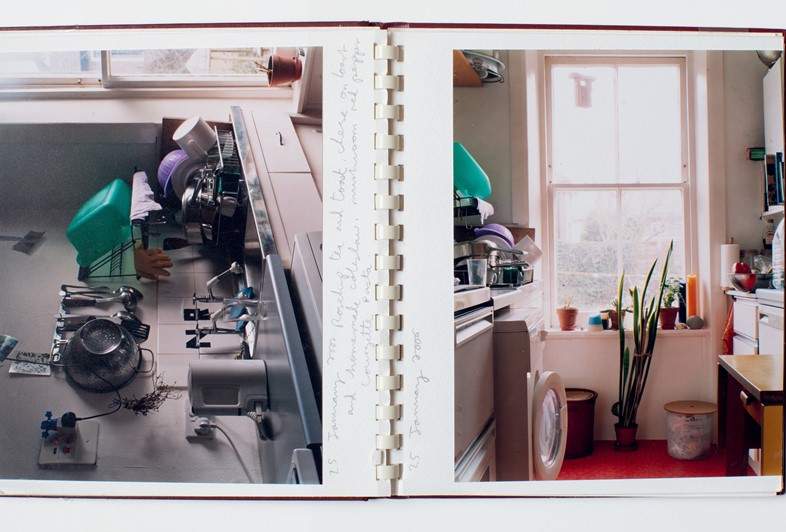
Shafran’s most well-known fashion project is Teenage Precinct Shoppers. First published in the January 1991 issue of i-D and made in collaboration with Melanie Ward, the series features portraits of teenagers in Ilford town centre and Brent Cross Shopping centre. A single portrait from the series appears in Workbooks 1984-2024, alongside the title reduced to the acronym ‘TPS’, again a reference for those in the know.
Beyond the more familiar subjects of Shafran’s work, Workbooks 1984-2024 offers insight into what motivates him to make images. A series of typologies punctuate the book; London Tree Photographs June-October 1993, Polaroids of dishes drying on a kitchen sink, escalator users at Paddington station and New York Deliveries 2014. “I like to do things at the time I’m interested in them,” he explains. There is an unfussy, uncomplicated immediacy to these series, that were it not for this publication, may never have been displayed publicly. Despite the objective titles (a strategy that Shafran regularly employs with his books) the series hints at changes in the urban environment that are perhaps most noticeable only years after the photographs were made.
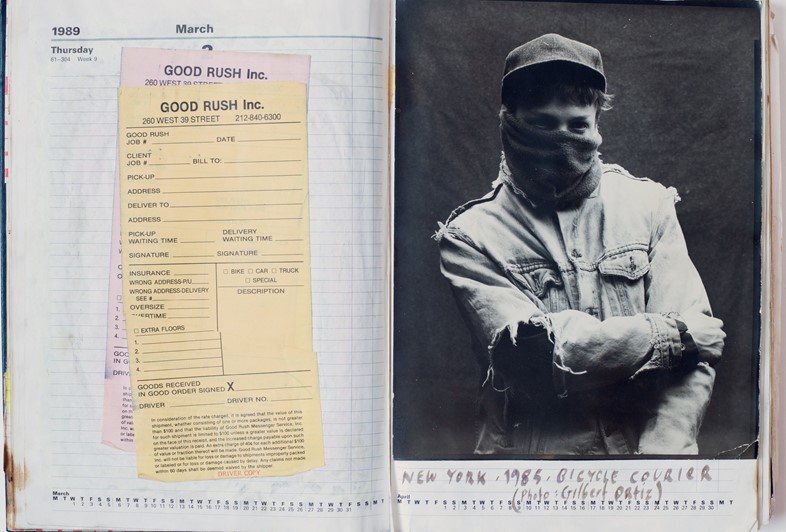
As with all biographical work, time is an inherent part of this project, a version of which was first presented as an exhibition in Hastings in 2014 (then titled Workbooks 1984-2014). There is a tangible energy in the initial urgency for Shafran to record and collate the ephemera, yet the meaning of the work has evolved as the decades have passed. In a culture that is increasingly losing any sense of the value of time and patience, Workbooks is a testament to their importance. This is not a book about photography, it is a reference book about family, friendship, cities, and commerce. Perhaps the biggest clue as to how to interpret this publication appears halfway through, two words written in blue biro – “small histories”.
Workbooks 1984-2024 by Nigel Shafran is published by Loose Joints, and is out now. Shafran will be signing copies on the Loose Joints stand at Offprint, followed by a launch event on May 22.
